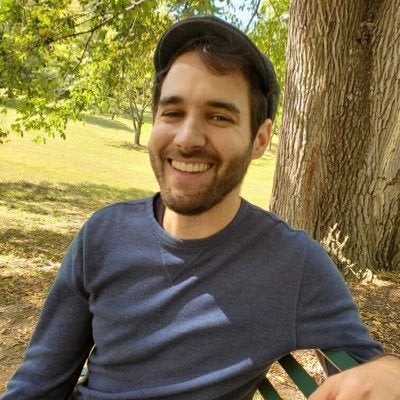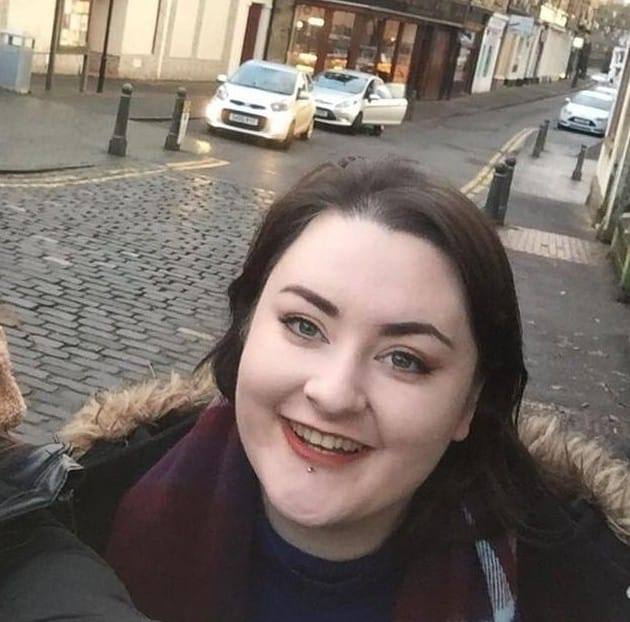Holstein Dissertation Fellows 2021-2022
| Brian T. Blackmore is a Ph.D. candidate in the Religion Department at Temple University with a certificate in Gender, Sexuality, and Women’s Studies. His intellectual interests lie in queer theory, queer theology, cultural criticism, ritual studies, and social movement history. His dissertation project is about gay and lesbian inclusion in the Religious Society of Friends (Quakers) and Quaker involvement in gay rights activism in the mid twentieth century. He has been a fellow at the Human Rights Campaign Summer Institute of the Religion and Faith Program and he currently serves on the steering committee of the Gay Men and Religion Group of the American Academy of Religion. Brian is also the Religious Studies Department Chair at Westtown School, a Quaker day and boarding school in the suburbs of Philadelphia. He teaches courses in Quakerism, World Religions, Religion & Sexuality, and Liberation Theology. Continually seeking to build bridges between religious studies educators in secondary schools and scholars working in higher education, he also organizes professional development programs for in-service high school teachers of religion with the Center for Spiritual and Ethical Education.
Mentor: Erika Dyson |
|
| Molly Greening (she/they) is an educator, activist, facilitator, and musician living on land stolen from the Council of the Three Fires (Odawa, Ojibwe, and Potawatomi). At Loyola University Chicago, she is a PhD Candidate (Integrative Studies in Ethics and Theology), Crown Fellowship recipient, and the first graduate of their dual master’s degree program in Theology and Women’s Studies/Gender Studies. Her research blurs disciplinary boundaries to expose the structures of power that attempt to define, control, and hierarchically rank religious, geographical, racial, sexual, and gendered differences. She is the co-editor of Unaccompanied Migrant Children: Social, Legal, and Ethical Perspectives (Lexington Books, 2019) and her dissertation, Grafting Through Stories: Transforming the Wounds of Religion, Sexuality, and Coloniality looks to the writings of Gloria Anzaldúa for possible methods of constructing queer trans-religious theologies.
Mentor: Peter Mena |
|
| Siobhan Kelly is a Ph.D. candidate in The Study of Religion at Harvard University with a secondary field in Studies of Women, Gender, and Sexuality. Their scholarship, published in Theology & Sexuality and Journal of Feminist Studies in Religion, examines the development of our contemporary understandings of gender, sex, and sexuality, specifically attending to the constitution of the field of trans studies within and outside the study of religion. Siobhan draws from psychoanalysis, deconstruction, and feminist, queer, and gender theory in their dissertation project, tentatively titled “Public Parts: Psychoanalysis, the Study of Religion, and Trans Subjectivity.” In this project, they hope to explore how ubiquitous terms like belief, desire, and biology operate in popular discourse by and about trans people, in trans studies, and in the study of religion. This project looks to understand how something like transgender subjectivity might come to be, using a psychoanalytic framework and scholarship from the critical study of religion to do so. Siobhan received a BA in Religion from Tufts University in 2015 and an MTS from Harvard Divinity School in 2017.
Mentor: Talia Mae Bettcher |
|
| Garrett Kiriakos-Fugate is a Ph.D. candidate at Boston University in the Religious Studies department. He is also enrolled in BU’s interdisciplinary graduate certificate program in Women’s, Gender, and Sexuality Studies. He earned his M.A. in Architectural Studies from the University of Kansas. His dissertation focuses on Muslim American preachers online and how their usage of digital spaces upholds cis-heteronormative piety. His research and writing are informed by scholarship on Islam in the United States, Islamic law, gender and sexuality, queer theory, digital religion, and sacred space.
Mentor: Xochitl Alvizo |
|
| Emma McCabe is a PhD candidate at the University of Stirling, co-supervised by the University of Glasgow. She is part of the Critical Religion Programme at Stirling and holds a BA in English & Religion and an MRes in Humanities. Throughout her university career, Emma has developed a keen interest in apophaticism as a theo-philosophical and literary framework, pursuing questions of God, gender, and unknowability throughout early modern literature. Her doctoral thesis aims to expand upon these conversations to interrogate the category of sex in early modern Europe and to create a trans-inclusive feminism for today. In doing so, it will call into question the historical production of the female body, challenging the assumed scientific naturalness of its cis-heterosexuality through the application of apophatic analysis. As such, she aims to articulate the fluidity of female embodiment by rethinking negation as central to reshaping understandings of sex and gender, especially as they relate to Renaissance medical, dramatic, and religious texts. Her doctoral work is funded by the Scottish Graduate School of Arts & Humanities, for which she is also a doctoral representative for the Theology, Religion & Divinity Training Catalyst.
Mentor: Arthur Little |


